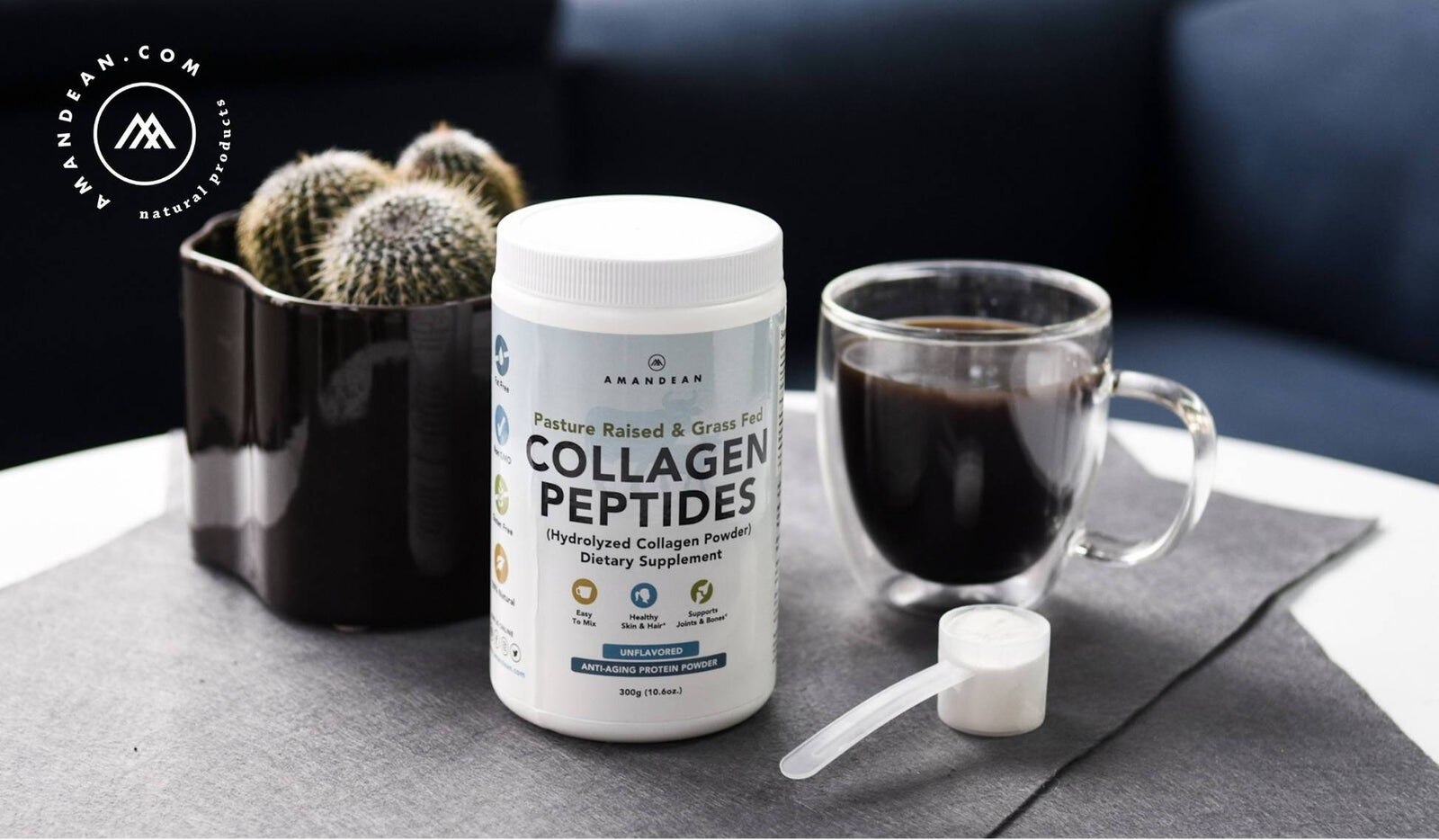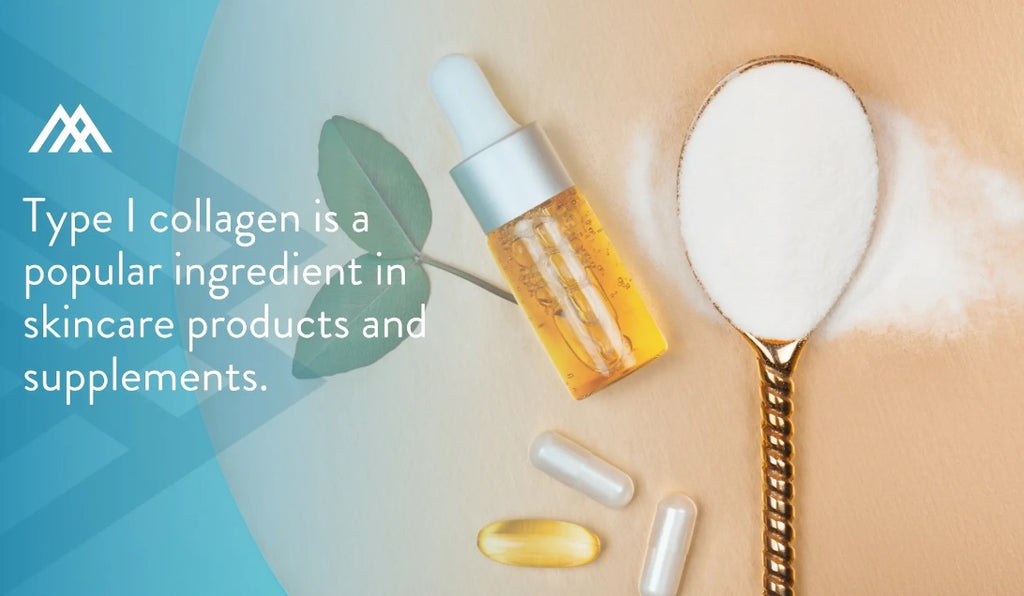Your Cart is Empty

November 02, 2020 6 min read

Collagen is the most abundant protein in the human body and is the foundation of our extracellular matrix. These strong and fibrous proteins play a huge role in the health of your skin, hair, and nails and it also strengthens and heals your connective tissues and bones. Collagen molecules are made up of amino acids, primarily glycine, proline, and hydroxyproline, which form into a triple helix procollagen molecule (think of it as a rope with three strands). These rope-like molecules are then transported through Golgi, bonded, and combined to form collagen fibrils that make up all the collagen fibers that support your organs, muscles, and connective tissues. Whew! Where can these collagen molecules be found after their long journey to maturation? Oh, just your skin, tendons, joints, blood vessels, teeth, bones, and the tissues that surround and protect your internal organs. No big deal!
While it's true that collagen can be found all throughout the body, various types of collagen are concentrated in different areas and types of tissues. That's because each form of collagen has its own unique strengths and benefits for the body. There are 28 known collagen types, but the most prevalent are of the "fibrillar" aka strong, fibrous category which includes types I, II, and III. From least abundant to most:


Take our quiz and find which supplements your body is craving.

When collagen levels are high, and the collagen molecules are healthy, it's likely that your skin, tendons, joints, and bones are too. However, inadequate levels of type I collagen can cause skin conditions, wrinkles, hair loss, joint pain, or even brittle bone disease, aka osteogenesis imperfecta, if the collagen molecule becomes mutated. That's why it's so important to make sure you get enough through your diet, using supplements whenever needed!

All collagen products on the market are non-vegan; all collagen supplements are derived from animals. If you're wondering if you can get collagen "straight from the source" by eating fish and other animals, the answer is yes; collagen can be found in many of the foods we eat. Egg whites, protein-rich foods like fish and beef, and bone broths have high contents of collagen. Eating foods rich in vitamin C can also help to boost your collagen synthesis, so make sure to eat lots of tomatoes, citrus, and bell peppers on the side.
Collagen is synthesized naturally in the body. However, as we age, we experience a steady decline in collagen production of about 1.5% a year after the age of 30. Free radicals can also damage the collagen stores in the body so they perform less optimally. This is why many people turn to collagen powder as a supplement to their daily diet to boost their skin, muscle, and hair health.
If you're looking to tap into the benefits of type I collagen specifically, marine collagen is the ideal source. It is derived from fish, contains primarily type I collagen, and is supplemented with its sidekick, type III. Marine collagen is hydrolyzed down to a much smaller molecular weight, making it 1.5x more bioavailable AKA easier for the body to absorb. Second to marine collagen is bovine collagen, which is derived from cows (ideally grass-fed cows if you're looking for the good stuff). Bovine collagen peptides also contain types I and III collagen.
Lastly, skin creams are another collagen product on the market. There has been a long-standing debate, but ultimately, you can get more out of collagen when it's taken orally rather than applied topically. This is due to the higher bioavailability of oral collagen supplements as compared to topical applications. With that said, you don't have to ditch your collagen creams altogether! By supplementing your skincare products with just a scoop of collagen a day, you can maximize its benefits and get collagen goodness coming from outside andinside - it's all about the angles!
If you’re looking for specific benefits from your collagen supplement, check in with your doctor and reach out to one of the product experts at Amandean for a 360 look at what collagen supplement is right for you!
Collagen molecules are made up of amino acids, primarily glycine, proline, and hydroxyproline, which form a triple helix procollagen molecule.
Type I collagen accounts for 90% of the entire collagen protein amount in the body.
Type I collagen is the most common type of collagen in skincare products and supplements.
Type I collagen deficiency can cause skin conditions, wrinkles, hair loss, joint pain, or even brittle bone disease.
Foods rich in vitamin C boost natural collagen synthesis in the body.

December 12, 2025 7 min read
Achieve luscious locks with collagen for hair. Try Amandean’s premium collagen supplements for stronger, healthier hair.

December 12, 2025 10 min read
Collagen packets by Amandean make skin, joint, and hair support easy on the go. Learn how collagen packets work and upgrade your wellness routine today.

October 17, 2025 8 min read
Find out why creatine is better for vegans! Boost your wellness game and unlock peak performance with Amandean's premium supplements today.